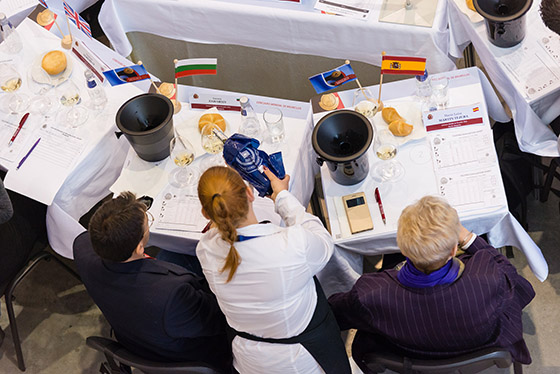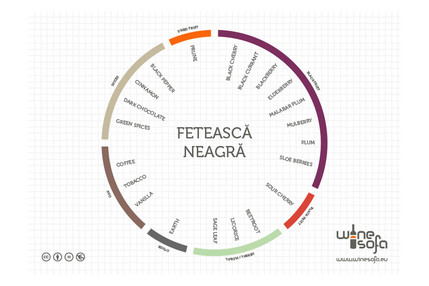You are new here? For the 1st part of this article click here.
Not only wine makers but consumers also find it hard to understand the different wine competitions and medals. Does it matter to them (to us) in a supermarket if a wine label reads that the given wine was awarded a gold medal in this or that competition? Do we really make our purchases based on that? And anyway what do the medals mean?

This should not be pictured as the Olympic Games where after the gold, the second wins a silver and the third a bronze medal. If only it was so simple! Most of the wine competitions follow the same pattern. Score ranges are preliminarily set (generally on a 100-point scale widely recognised internationally, though this may vary too), and after blind tasting the jury rates and scores the wines. Apropos blind tasting: the jury does not see the label of the given wine prior to or during tasting, so, if all goes well, they have no idea what they are tasting. There certainly are points of reference: sometimes the country or the vintage is specified beforehand but not much more information is given. (It can be funny though when a wine judge with considerable experience behind confidently claims that this or that wine can only originate from this or that place based on its flavours and fragrances, legitimizing why it is so good or bad, then after the competition he faces the fact that he tasted a completely different one…) So there is the wine in a glass, the judge sniffs at it, tastes it and then rates it according to different criteria and, in the end, the final score is either enough for a medal or not. What is more, tasting panels are in general composed of several members, sometimes five or seven members rate a wine together. In such cases the highest and the lowest scores are automatically dropped out, and an average of the rest of the scores is calculated resulting in the final score of the given wine. (We should also add that at prestigious wine competitions, the organisers also test the panel members by giving them the same wine several times to see whether they rate it with roughly the same scores or not. This is subsequently evaluated, forwarded to the panel by e-mail and it may also have an influence on whether or not a wine judge would be invited to the next competition)
Sadly, the score ranges (although publicly accessible) are not uniform, so if a given score is worth a gold medal in one competition, it may only be enough for a silver one in another. And now, dear consumers, here comes the name of the game: the so-called grand gold medal is the ultimate solution! It is even better than a gold medal because in all competitions this is awarded only to the best. Nevertheless, here again you should look at the category of the wine because sometimes retail chains can do weird things. A grand gold medal can easily be awarded to a northern style (let’s say Slovakian) Rosé in an international wine competition but if a supermarket begins to sell this wine, that is unique in its category and intended for consumption in the fresh state, only after two years… well, by that time this wine will be over its finest days and tasting it will disappoint you.

My personal experience is that besides wines decorated with a grand gold medal, the ones having a gold medal do not usually let us down either, especially if it was awarded in a leading international wine competition. At this level, the chances of “oversight” are rather low. But below, that is to say at the level of silver and bronze medals, we’d better watch out. If you have a reference, you know the wine maker or the given wine, then you should just buy it, but merely for the medal, don’t waste your money. A wine awarded with a bronze medal in a simple wine competition may not even be worthy of being presented in a wine magazine just based on the score it was given.
A better solution may be if the number of medals to be awarded is limited in the given wine competition, thus the number of potential “failures” is less or (and there are examples to this one too) if the number of gold medals to be awarded is limited, the wines will fit into this category based on their scores and once all gold medals are out, the rest of the wines will be included in the silver then in the bronze categories. This way, such wines will win a silver or bronze medal that were theoretically given scores corresponding to the gold medal, but did not fit into the category of wines awarded with the highest scores. Now this resembles a bit more to the Olympic Games…

Then what should I pay attention to?
To put it in a simple way: nothing. It is not important if a wine has a gold medal or not, but what matters is if you enjoy it or not. There are many small wineries that do not enter their wines for any competition simply because they do not have enough wine, so for them it is not worth spending money. Irrespective of that, though, they may well make the best wine on Earth. But if you insist on buying a wine based on its competition results, please take the time to read this article and check out several hundreds of wine competitions so that you can be well-prepared for this adventure. Have fun!






